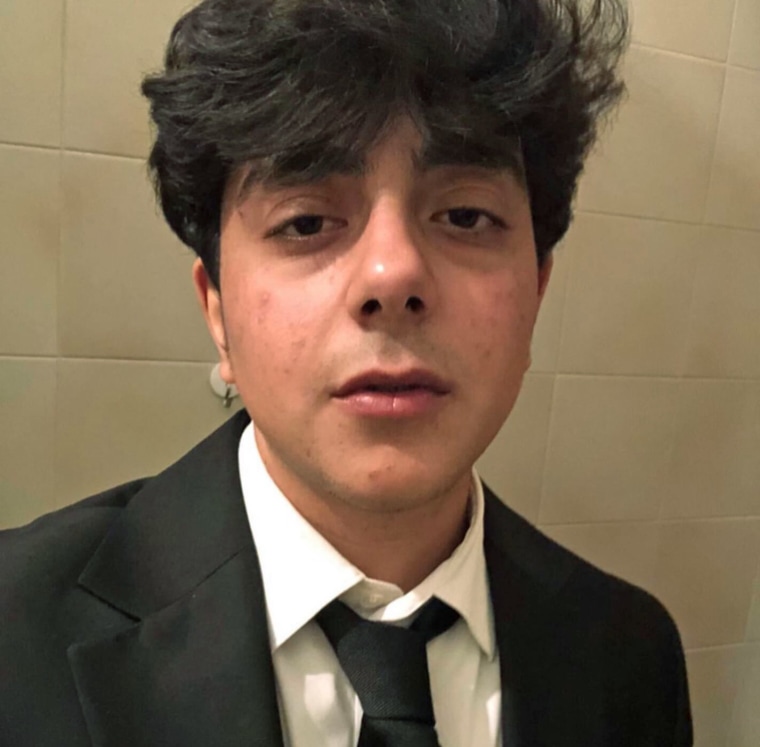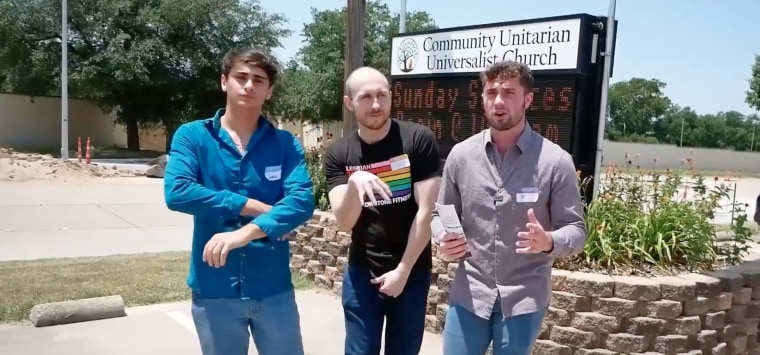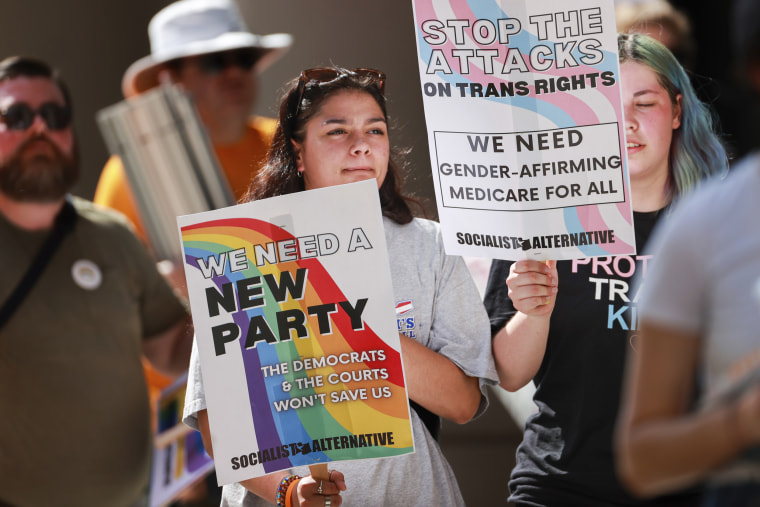Transgender Floridians Seek Emergency Block on Adult Healthcare Restrictions in SB 254
Four Florida residents filed a motion in federal court yesterday seeking an emergency block on provisions in SB 254 that have created arbitrary, harmful and medically unjustified restrictions on medically-necessary healthcare for transgender adults. Olivia Noel, Kai Pope, Lucien Hamel, and Rebecca Cruz Evia, are all facing dangerous disruptions in their ongoing medical care due to the Florida law.
The motion for preliminary injunction filed yesterday follows the filing of an amended complaint on July 21 expanding the case, Doe v. Ladapo, to challenge state law SB 254’s restrictions on medical care for transgender adults and seeking class-wide relief for all transgender minors and adults who require medical care restricted by SB 254.
“I have been following an established healthcare plan for years, but because of SB 254 my care has suddenly stopped and I can no longer see the provider I trust and who knows my medical history,” said plaintiff Lucien Hamel. “I’m terrified because stopping my care is already having a negative impact on my health and on my family.”
“My physician had to cancel my procedure because of SB 254,” said plaintiff Rebecca Cruz Evia. “I can’t even schedule an appointment with a physician because they are all afraid of this law, even though medical providers have determined this care is medically necessary for me. I’m frustrated and scared about what will happen if I can’t get the care I need.
“I wake up every day feeling like I’m in a nightmare. SB 254 has canceled medically-necessary treatment prescribed for me by my medical team,” said plaintiff Kai Pope. “As a physician myself, SB 254 alarms me not only because of the devastating harm it is causing me and other transgender Floridians, but because of the disruption it is causing to our healthcare system.”
The plaintiffs are represented by Southern Legal Counsel, GLBTQ Legal Advocates & Defenders, the National Center for Lesbian Rights, and the Human Rights Campaign, which issued the following statement:
“SB 254’s restrictions on well-established medical care cause profound harm, serve no legitimate purpose, and reflect gross legislative overreach. SB 254 takes away Floridian’s ability to make important decisions about their own lives and hands it over to the government instead. That should alarm us all.
“In addition to banning established medical care for transgender adolescents and creating criminal and civil penalties for those providing such care, SB 254 enacted severe restrictions on access to care for adults. Advanced Practice Registered Nurse – Nurse Practitioners (APRN-NPs) are critical providers of transgender healthcare in Florida. SB 254 now completely bars them from continuing to treat transgender patients. SB 254 also arbitrarily restricts the use of telehealth for transgender patients and requires in-person consultation for the initial prescription of all transition-related care, a requirement that can be impossible to meet for Florida residents who don’t live near a providing physician. Pursuant to SB 254, the Boards of Medicine have also created mandatory, one-size-fits-all consent forms that defeat the purpose of informed consent by requiring providers to convey false information to their patients and by imposing extremely burdensome, unnecessary, and medically unjustified requirements that transgender patients must meet to obtain even routine transition-related care. Rather than protecting transgender patients, these restrictions intentionally make it difficult or impossible for transgender adults to receive needed medical care.
“These restrictions serve no medical purpose and intentionally prevent transgender people from receiving the care they need.”
The motion filed yesterday by plaintiffs Olivia Noel, Kai Pope, Lucien Hamel, and Rebecca Cruz Evia seeks an emergency block on all provisions in SB 254 and related Boards of Medicine Rules restricting access to established transgender medical care for adults while their legal challenge to SB 254 continues.
The federal district court issued a prior preliminary injunction on June 6 halting enforcement of the ban on healthcare for transgender minors and saying the ban is likely unconstitutional. That order allows Florida parents to access necessary medical care for their transgender children.
Read the motion for preliminary injunction
Read the plaintiffs’ request for argument
Read the third amended complaint and request for class-wide relief
Motion to file third amended complaint and join new plaintiffs
Read the preliminary injunction order
Read more about the lawsuit, Doe v. Ladapo
###
Southern Legal Counsel, Inc. (SLC) is a Florida statewide not-for-profit public interest law firm that is committed to the ideal of equal justice for all and the attainment of basic human and civil rights. SLC’s Transgender Rights Initiative protects the rights of Florida’s LGBTQ+ community through federal impact litigation, policy advocacy, and individual representation. www.southernlegal.org
Through strategic litigation, public policy advocacy, and education, GLBTQ Legal Advocates & Defenders (GLAD) works to create a just society free of discrimination based on gender identity and expression, HIV status, and sexual orientation. www.glad.org
The Human Rights Campaign (HRC) is America’s largest civil rights organization working to achieve lesbian, gay, bisexual and transgender equality. HRC envisions a world where LGBTQ+ people are embraced as full members of society at home, at work and in every community. www.hrc.org
The National Center for Lesbian Rights (NCLR) is a national legal organization committed to advancing the human and civil rights of the lesbian, gay, bisexual, transgender, and queer community through litigation, public policy advocacy, and public education. Since its founding, NCLR has maintained a longstanding commitment to racial and economic justice and the LGBTQ community’s most vulnerable. www.nclrights.org






